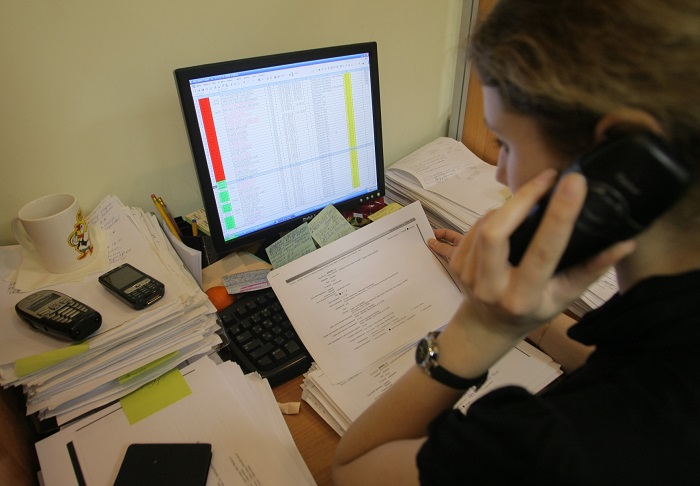When a bank or a large credit organization is going to conclude an agreement with an individual for the provision of a loan or a loan, the fundamental factor of trust is the information on income and guarantors not provided by the applicant. The main thing in this matter is the preliminary financial situation around the borrower. Simply put - .
A reasonable question that most applicants have - is there a single database of loans and borrowings, is it possible to access it without being a major lender? Is it possible for a specific citizen? In this article, we will open the veil of secrecy and clarify this issue. Everything in order.
By typing a simple address fssprus.ru in any browser, the applicant gets to the site of bailiffs, where the federal database of debtors is located. A painstaking collection of information has been carried out for a long time, but only recently, by a government decree, it has been made publicly available. Yes, there is a single database and the information located in it represents debts of any kind:
- non-payment for housing and communal services;
- debts on loans and borrowings;
- tax payments and delays on them;
- alimony arrears.
It turns out that any debt of an individual is recorded in this database. In addition, there is an opportunity to get acquainted with and individual entrepreneurs before the state budget, municipalities and others.
Data verification is of interest not only to employees of banks and credit institutions. You can clarify your own reliability in person, for example, before traveling abroad, because according to the legislative acts of our country, debtors (not only large ones) are prohibited from leaving state borders.
The disadvantage of this database is the incomplete information provided. It turns out that this database is filled in by federal bailiffs on the basis of the information they receive. Debts on loans or bank loans are not always included here, because banks simply impose penalties on negligent borrowers without notifying the executive authorities.
If the bank connects the courts to the case, then the information goes to the bailiffs, and they place it in their database. True, as soon as the borrower liquidates the debt, data on late payments and legal proceedings are removed from the general database, that is, the credit history, in this case, will not deteriorate.

Applicants' arrears are reported to the credit and loan history bureau. The disadvantage of such information was that the borrower could not indicate his overdue debts, the bureau could not update the information on time, add the human factor here and get not entirely correct information databanks.
With the advent of a unified database on loans and borrowings, everything has become much easier. Now the bank does not need to make a request to any credit bureau, or several, in order to obtain information about a particular borrower, about his debts and solvency. Large and small credit organizations work with the same base, including those issuing small amounts for short periods.
The base contains only information relevant to the present day. Delays in payments of housing and communal services and alimony are unlikely to interest a large creditor. Only persistent debts, delays in payments and unpaid loans can influence decisions in favor of issuing finance to the applicant.
Another reasonable question arises - do bank employees and employees of large credit institutions use other sources than a single database of loans and borrowings?

Undoubtedly, in order to issue large amounts, it is necessary to check the borrower on more than one line. The database provided by federal bailiffs contains up-to-date information, but does not show the full picture. In terms of knowing the full financial history of the borrower, it will be more relevant to contact the appropriate bureau.
Only there you will find all the information about:
- late payments,
- delays in payments,
- financial litigation,
- unpaid microloans and large loans.
As mentioned above, the debt paid by the borrower is removed from the unified federal database of bailiffs and information about it "disappears", which does not give a complete picture of the financial "life" of the applicant. Whereas the indication of all delays, debts will give the correct point of view on whether it is worth having a financial relationship with a person, an organization.
Large lenders like banks find it easier to get information about a potential borrower. Using a single database of loans and borrowings, data on credit histories and other sources, the bank can compile a complete picture of the financial activity of the applicant and make a decision at his request, often not in favor of the latter.
Before applying for finance to banks, large creditors, even a microfinance organization, you should inquire about your own credit history, remember all debts, settle all unresolved issues, and pay off debts. A calm financial past will ensure an equally bright financial future.
The base of credits and loans exists, the players of the financial market use it, it is not necessary to be in it and it is worth paying off all debts in order to make your life easier.






